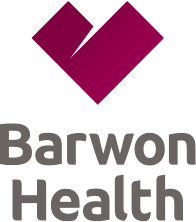Protecting your baby
Vitamin D Supplementation
Most newborns do not receive enough Vitamin D from their mothers during pregnancy, from sunlight or through their diet. Therefore, it is recommended that all babies are given a vitamin D supplement.
In Australia, it is now recommended that all babies are supplemented with Vitamin D until they are 6 months of age. In the case of babies receiving formula, Vitamin D supplementation should be continued until the baby has a daily intake of more than 1000mL of standard formula. All babies will be discharged home from maternity services with a pharmacy script for Vitamin D Supplementation.
For more information please discuss with your midwife or doctor and see the following information Vitamin D Oral Drops (OsteVit-D®) for Newborns.
Vitamin K
Vitamin K is needed by our bodies for clotting and prevents bleeding. Babies are born with only small amounts of vitamin K and breast milk has low concentrations of vitamin K. As a result, babies may be at risk of serious bleeding problems early in their life. We recommend that you consent for your baby to have an injection of Vitamin K soon after birth. This is given as a once of dose.
Vitamin K can be given by mouth though most parents choose the one of injection. When vitamin K is given by mouth three doses are required. The first dose at birth, second on day three and then in one month the final dose.
Hepatitis B vaccination
Hepatitis B is a serious illness caused by a virus that affects the liver. When Hepatitis B is contracted, the person may not appear ill, and be carried in the blood for many years. They can pass the illness onto others. People who carry Hepatitis B have a high risk of liver cancer or liver failure later in life.
We recommend that you have your baby immunised at birth and then your baby will have three further doses of the immunisation as part of the immunisation program.
Newborn screening
With parents’ consent all babies are screened for rare but serious medical conditions. Ideally, the test is carried out between 48 and 72 hours. The test is a heel prick, blood test. The blood is collected on a card and the card sent to the Screening Laboratory in Melbourne. The test can be performed in hospital or in your home if you have been discharged. The main diseases being screened for are;
- Phenylketonuria (PKU)
- Hypothyroidism (thyroid deficiency)
- Cystic fibrosis (CF)
Jaundice
When a baby is jaundiced, they have a yellow tinge to their skin. Jaundice is very common amongst newborn babies. The most common type of jaundice is called physiological jaundice which occurs when the baby’s liver is unable to cope with the breakdown of the red blood cells, after the baby’s birth. The red blood cells are converted to bilirubin and cause the skin to yellow. Physiological jaundice appears after the first 24 hrs of life. Midwives will be monitoring you baby’s level of jaundice. If your baby is jaundiced within the first 24 hrs of life your baby will be monitored more closely and reviewed by a paediatrician.
Treating jaundice
If your baby’s jaundice is mild the only treatment is to ensure that your baby is fed frequently to prevent dehydration which can increase the level of jaundice.
If your baby is moderately jaundiced, sleepy, not feeding and is not having enough wet nappies a blood test is recommended to establish how high the bilirubin level is. The test is called a Serum Bilirubin or SBR. If the paediatrician considers the level to be high phototherapy will be recommended to reduce the bilirubin level.
Phototherapy is safe for your baby. Your baby will be undressed with its eyes covered with small eye pads and be placed in an isolette (humidicrib), with artificial light above for 24 -36 hrs. You will be able to take your baby out of the isolette for feeding.
This light will break down the bilirubin. Your baby will also need to feed regularly. Feeds will be planned to be no further apart than four hours.
Dangers of smoking around your baby
Tobacco smoke is made up of thousands of chemicals and many of them are very harmful. Around 70 of them cause cancer.
Second-hand smoke is the smoke you breathe in from other people’s cigarettes, cigars or pipes. It can cause serious health problems for your child. Breathing in second-hand smoke is sometimes known as passive smoking.
Third-hand smoke is the toxins that land and stay on nearly every surface in the area where someone has been smoking, including on clothes, in hair, on furniture and on flooring. Second-hand and third-hand smoke are especially dangerous for babies and children.
This is because babies and children have smaller airways and less mature immune systems than grown-ups. Their smaller airways mean they breathe faster, so they breathe in a lot more of a cigarette’s harmful chemicals than an adult would in the same time.
Babies and children are also closer to the floor and often put their hands and toys into their mouths. This means they might swallow or breathe in the toxins from third-hand smoke.
Last Modified: Thursday, 16 February 2023
Related Links
